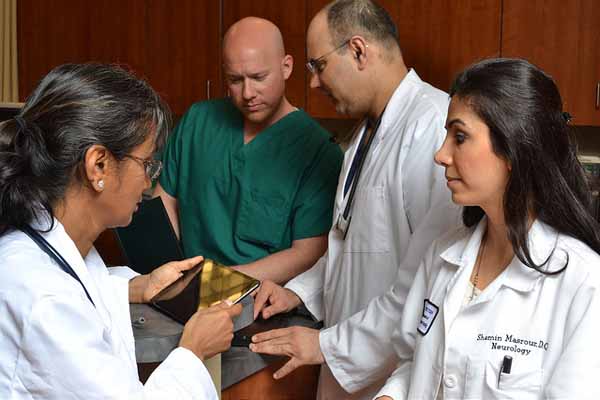
After a transition year in 2019, accountable care organizations (ACOs) enrolled in the Medicare Shared Savings Program (MSSP) faced another daunting challenge: the COVID-19 pandemic.
But data released by the Centers for Medicare & Medicaid Services (CMS) in August show most ACOs with Texas participants performed well in 2020, including one that topped the nation’s success list.
Fifty-three such ACOs participated in the 2020 MSSP performance year, according to an analysis by TMA PracticeEdge, which helps practices form ACOs to participate in quality programs. About two-thirds of the ACOs with Texas participants saved Medicare $605.82 million, generating $331.78 million in performance payments that will flow back into their health care programs as a result.
(For more information on joining an ACO through TMA PracticeEdge, and pooling your resources and infrastructure with those of other practices to hit your quality targets, visit the TMA PracticeEdge website.)
The pandemic emerged after Medicare debuted its Pathways to Success system in mid-2019. The Pathways to Success scheme features a Basic track, in which ACOs begin as a one-sided risk model and gradually take on higher levels of risk, and an Enhanced track, in which ACOs assume the highest level of risk and potential reward. The system’s first full performance year was in 2020.
Baylor Scott & White Quality Alliance (BSWQA), a large ACO that served 129,866 Medicare patients across Texas in 2020, generated the most savings of any ACO in the country: $96.37 million, at a rate of 7.12%.
Representing 900 physicians and nonphysicians caring for 27,330 Medicare patients, WellMed Texas Medicare ACO generated the largest savings rate among Texas-based ACOs at 11.06% while participating in its first MSSP contract. The rate is calculated as the difference between an ACO’s updated historical benchmark and actual patient expenditures, according to CMS.
Genesis Physicians Group, a smaller ACO representing 89 primary care physicians and their care teams in the Dallas-Fort Worth metro, generated a 10.98% savings rate, ranking second among Texas-based ACOs. It cares for more than 6,500 Medicare patients.
“2020 was our third year participating in the MSSP contract,” said Genesis President and CEO Jim Walton, DO. “While it is difficult to know exactly, I would say our success is tied to the relationship[s] … that we had established in year one and year two with many of our physicians.”
Those relationships proved critical during the pandemic, when shutdowns caused patient volume to plummet and forced practices to send staff home.
Genesis invested in telehealth services to make sure its patients weren’t missing out on care. By strengthening patients’ connection to their primary care physicians, Genesis reduced avoidable – and costly – hospitalizations, emergency visits, and self-referrals to specialists.
The ACO will redistribute about half of its $4.1 million earnings to member physicians. “We recognize the doctors’ efforts as our primary intervention to improve quality while reducing costs,” Dr. Walton said, adding that these dollars will help offset pandemic-related pay cuts.
Baylor Scott & White Quality Alliance also attributed the ACO’s success in 2020 to its previous experience in MSSP, says Jenny Reed, senior vice president for value-based care.
Despite months-long clinic shutdowns and pauses in elective procedures, including colonoscopies and other preventive care, BSWQA saw increased engagement from its Medicare patients. At the beginning of 2020, around 30% responded to calls from care management staff, Ms. Reed says; by early 2021, that rate had jumped to close to 60%.
As a large integrated health system, Baylor Scott & White was also able to quickly deploy new outreach programs, like its MyBSWHealth app, which connects patients diagnosed with COVID-19 to quarantine instructions, regular symptom checks, care management professionals, and telehealth visits.
With its shared savings from 2020, BSWQA says it will reinvest in its primary care infrastructure, seeding future success.
Ms. Reed commended the Centers for Medicare & Medicaid Services for responding to participants’ feedback about how to improve MSSP and providing incentives that make the program worthwhile.
TMA continuously advocates for improvements to Medicare’s quality programs, and is currently drafting comments on the 2022 proposed Medicare Physician Fee Schedule and rule changes to Medicare’s Quality Payment Program. Read Texas Medicine Today for future coverage.